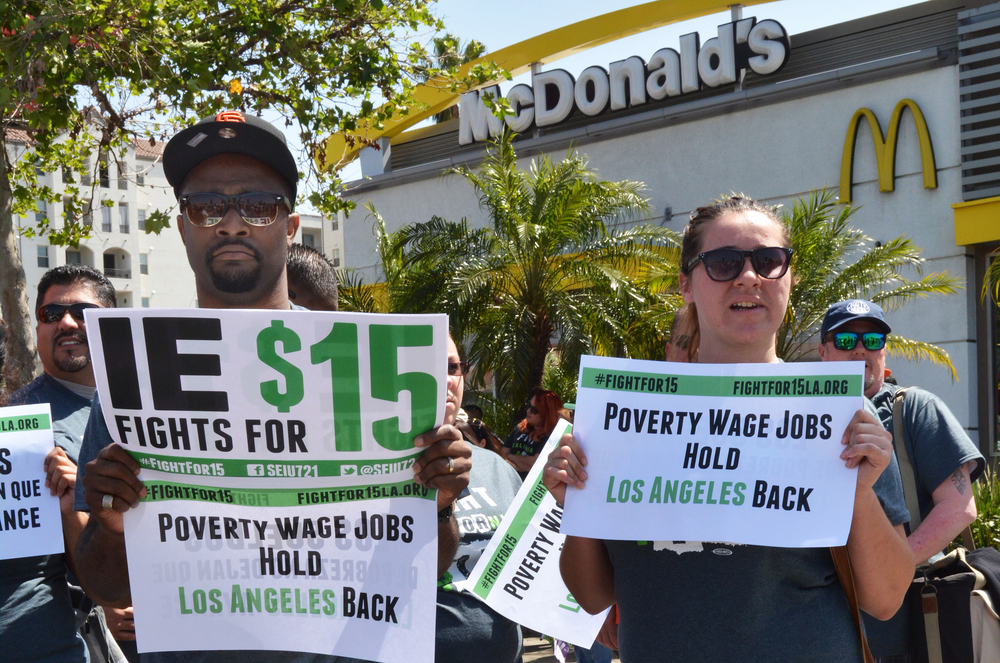
Last month, McDonald’s announced a dramatic about-face in its political priorities. After years of strikes and protests from labor activists, the burger giant has decided to end its involvement in lobbying campaigns against increasing America’s paltry $7.25 federal minimum wage.
It’s a big victory for the Fight for $15.
It’s been less than a decade since a few hundred fast-food employees walked off the job to demand a $15 wage and a union. Now, they’re a global movement that’s fundamentally changed the conversation on the rights of low-wage workers.
For the most part, federal lawmakers have watched idly while cities and states have boosted their minimum wages up to $15. Just last month, Maryland became the sixth state — and the third this year alone — to phase in a $15 minimum wage after lawmakers overrode Republican Governor Larry Hogan’s veto.
But the idea now has more traction in Congress thanks to the recently introduced Raise the Wage Act, which would set a national minimum pay of $15 an hour by 2024. The legislation would lift pay for almost 40 million workers, the Economic Policy Institute has found.
As the push for higher wages continues to gain steam across the country, the movement promises to keep fighting: Workers greeted the new announcement from McDonald’s with more protests.
It’s not enough to decide, they say, that you “wish to advance, not impede” the discussion on a livable wage by simply ending your campaign against an enormously popular policy.
Employees are still calling on the fast food franchise pay $15 an hour and respect their right to unionize. That’s a pretty fair demand, considering their CEO made nearly $22 million in 2017 — over 3,100 times what the typical McDonald’s employee took home that year. They’re also continuing their fight to make the company take workplace harassment seriously.
McDonald’s is often — and rightfully — portrayed as a villain in the fight for fair wages and workplace protections. But it’s also only one player in an economy that continues to tighten its chokehold on anyone who works for a living.
Raising the federal minimum wage is one necessary change we can make to a system that throws endless amounts of money towards the rich while balking at workers’ demands to be able to live off their earnings.
How can we begin to imagine the inequity baked into that system?
Take a look at Wall Street’s bonus culture to see just how warped our economy has become. Last year, Wall Street employees took home $27.5 billion in bonuses alone. That pool of money could pay all of the United States’ full-time minimum wage workers more than three times over, a new report from the Institute for Policy Studies has found.
Those bonuses mean the average Wall Street employee added $153,700 to their base pay in 2018 — a truly mind-boggling sum of money that’s increased by 1,000 percent since 1985. If the minimum wage had grown at that rate, McDonald’s workers would be making over $33 an hour today.
These staggering numbers go a long way toward illuminating how stark the concentration of wealth and power has become in this country. They also highlight the enormity of the task of remaking our economic system so that it works for everyone, not just CEOs and Wall Street bankers.
But, thanks to Fight for $15, we’ve been given a clear place to start: $15 and a union.
